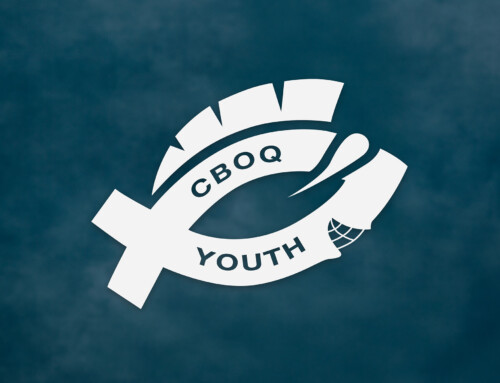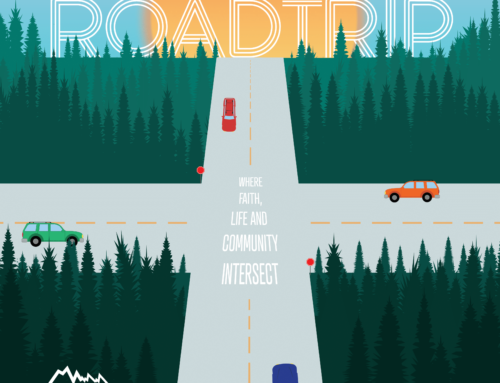The following is an excerpt taken from our book Faith Formation 2.0.
Mentoring has become the buzzword in the discipleship of children and youth. It’s the biblical model of discipleship that Jesus demonstrated and Paul with Timothy exemplified. That’s more than a buzzword! It has been shown to be one of the most effective and high-impact means for supporting students in their faith development, because mentors are able to address very specific developmental needs (while ministry groups address chronological needs). Studies show that intergenerational relationships are vital and formative in faith development.
James Frazier, author of Across the Generations, says, “The best way to be formed in Christ is to sit among the elders, listen to their stories, break bread with them, and drink from the same cup, observing how the earlier generations of saints ran the race, fought the fight, and survived in grace.” However, it’s not often we see children and youth relating deeply with adults from their communities, despite the research showing that young people desire to be mentored. Adults give several reasons for not mentoring:
- They don’t have time to mentor on a high level every week.
- They’re not sure what mentoring really is. (Many adults have never been mentored themselves.)
- They’re uncomfortable being around youth. This usually translates into fear of conversing or relating to youth because some adults just “don’t get them.
While it’s true mentoring is part of a Christ-follower’s biblical mandate (cf. Psalm 78:1-8), we can’t expect people to just “do it” without first being equipped. It’s important to note is that investing in the next generation is not just for youth or children’s ministry workers. This is something that every mature follower of Jesus is called to do. Therefore, as the church, we need to invest in people and equip them for this calling. The Sharing Life model helps with the transition into mentoring, as jumping right into being a mentor might be tough for some.
Sharing Life involves sharing life with one another, teaching and learning from one another, so think of it as an on-ramp to mentoring. While this may not fit the strictest definition of mentoring, Sharing Life is a way to build intergenerational relationships that foster trust. We’ll use a six-degree scale to break down different aspects of this continuum. Think of them as degrees of involvement instead of a sequential progression. People can move between these degrees of involvement depending on their life circumstances.
1st Degree (1D)
Every relationship begins with some basic knowledge of the other person. What’s his or her name? Parents’ names? What grade? Which school? What interests? The key to this is consistency. Is that adult regularly connecting with that student? This doesn’t have to be a long conversation (maybe just a couple of minutes), but it does need to be consistent. It’s proactively interacting with students each week—greeting them, seeing how they are, and finding out about their lives (e.g. “How was that math test last week?”). The crucial part of this level is following up. The key is reminding students they are noticed and are missed if they are not around. It is a way to demonstrate that they have a place in this community.
2nd Degree (2D)
This is the deepening of the conversation from 1D. Whereas 1D’s purpose was to connect for a brief time, now the adult extends the conversation. Consider this the 2+ level conversation. Here’s an example:
- A: How was your math test last week?
- C: It was really hard.
- A: What did you find most difficult?
- C: I still have trouble with fractions.
- A: How much time did you spend studying?
- C: At least 3 hours.
- A: It sounds like you’ve put a lot of effort into this. I’m proud that you took that much time.
This degree maintains that consistency but delves deeper into students’ lives. To engage the next generation is to enter into their world rather than pulling them into yours. While we use the term “adult” in this section, this person can be a youth Sharing Life with an elementary student. It refers to the older individual in that relationship.
3rd Degree (3D)
At this level, the adult is looking for ways to enter the student’s world. This can include:
- attending special occasions like a sports tournament or a recital (mentors may consider bringing along their families)
- meeting at a coffee shop after class near their school.
It doesn’t have to be frequent. However, entering their world gives a vantage point into other areas of the students’ lives. It also broadens their familiarity with the mentors by seeing them in a context outside of the church building. (We’ve all had moments where we recognize a face but forget a name because we see someone in a completely different context.) Stepping into their world deepens the sense that adults are making time for them on their turf.
4th Degree (4D)
At this level, adults have gained trust so now they can begin to invite students into their world. In Doug Fields’s book Purpose-Driven Youth Ministry, he uses the example of bringing them along to run errands. Perhaps an adult would like to invite the student’s family over for dinner. Adults can even partner with a friend and invite both students and their families for a meal. 4D looks for opportunities for the student to see the adult living outside a church context.
5th Degree (5D)
One great way to share life is by serving together. Typically, this involves common interests and/or gifts. The key here isn’t just ministering together, but continuing those God-exploration conversations. It also provides ways to share common experiences where the mentor and student begin to see each other more as peers versus leader and student. For example, an adult may teach a student how to use the sound board in the sanctuary. The adult intentionally goes beyond the “how to” stage of operating the sound board to helping the student unpack how this is a ministry. They can continue conversations like in 2D. The focus isn’t just the ministry itself, but another opportunity for the adult and student to learn and serve together with shared experiences.
6th Degree (6D)
Formal mentoring occurs at this stage. We define this as intentional, intensive, time-defined explorations of God’s directives for that individual. Let’s break this down:
- Intentional: Both the student and mentor understand the purpose of gathering.
- Intensive: They realize this may delve into appropriately “hard” moments as the student moves deeper into his or her own faith and exploration.
- Time-defined: Most mentors cannot commit to being “mentors for life.” An understanding exists between the student and mentor on how long this particular context will last.
- Explorations of God’s directives: Mentoring isn’t about going through a curriculum or a set of learning objectives (although that may be part of it). The purpose is helping students hear and understand what God is saying to them. Mentors are to help facilitate and create space for God’s directives to become as clear as possible.
The point of this is to intentionally focus and assist students in uncovering what God may be revealing, whether through Scripture, through everyday circumstances or through in-depth self-reflection. Bo Boshers’ book called The Be-With Factor explains this process well. These personal mentorship relationships are extremely influential and important, but mentorship is broader than these levels of engagement.
Communal mentorship really takes the form of Sharing Life. Sharing Life is about a whole community engaging in holistic discipleship. It’s not a program to implement; rather, it is a culture a church embraces as a whole and the adults take ownership in doing their part. It is imperative to build those relationships with the support of the parents. This isn’t to say the adult reports to the parent, but the adult builds the parent’s trust as that individual walks alongside the child. Through it, the adult becomes another voice that child trusts. The mentor cares for the child, models a life following Jesus and is there for the child as they take the next steps in their faith journey.





Leave A Comment